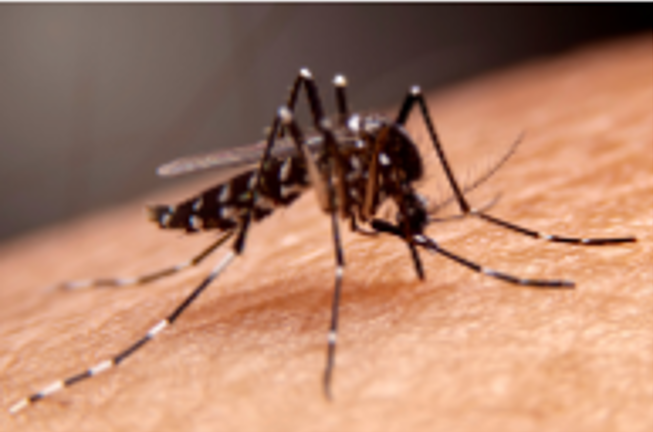Blog | Travel Medicine
Dengue Infection in Indonesia: A Traveler’s Guide
published: 5/5/2025
viewedby 25911 visitors
1. What is Dengue Fever?
Dengue fever is a mosquito-borne viral illness transmitted by the Aedes aegypti mosquito, which is common in tropical countries like Indonesia. It's a year-round risk, particularly during the rainy season (November–April), with higher incidence in urban and semi-urban areas.

2. Symptoms of Dengue
Symptoms usually appear 4–10 days after a mosquito bite, and include:
- Sudden high fever
- Severe headaches (especially behind the eyes)
- Muscle, bone, and joint pain (“breakbone fever”)
- Nausea and vomiting
- Skin rash (2–5 days after fever starts)
- Fatigue and weakness
In rare cases, it may develop into severe dengue (dengue hemorrhagic fever), which can lead to bleeding, organ impairment, and even death.
3. Prevention Tips for Travelers
a. Avoid Mosquito Bites
- Use insect repellent
- Wear long-sleeved shirts and long pants, especially during early morning and late afternoon.
- Stay in accommodations with air conditioning or screened windows/doors.
- Use mosquito nets if sleeping in open or unscreened areas.
b. Control Breeding Sites
- Eliminate standing water around living areas (flower pots, buckets, open containers).
- Report mosquito-infested areas to local health authorities or hotel staff.
c. Vaccination
- Dengue vaccine (Qdenga) is now approved in some countries for travelers. Ask your doctor if it's appropriate before travel.
- Vaccination is not a replacement for bite prevention.

4. What to Do If You Suspect Dengue
a. Seek Medical Care Promptly
- Visit a clinic or hospital for a diagnostic blood test
- Monitor for warning signs like persistent vomiting, severe abdominal pain, bleeding gums, or drowsiness.
b. Home Care for Mild Dengue
- Rest and stay hydrated (oral rehydration, coconut water, electrolyte drinks).
- Use paracetamol (acetaminophen) for fever and pain.
- Avoid NSAIDs (ibuprofen, aspirin) due to bleeding risk.
c. Emergency Warning Signs (Seek Immediate Care)
- Bleeding (nose, gums, or internal)
- Severe abdominal pain or tenderness
- Persistent vomiting or lethargy
- Rapid breathing or cold, clammy skin
5. Travel Insurance and Health Access
- Ensure you have travel health insurance that covers medical evacuation.
- Keep a list of recommended international hospitals or clinics in Indonesia (e.g., Bali International Hospital)
- Inform your travel partner or hotel in case of medical emergency.
6. Summary
- Dengue is common in Indonesia—prevention is key.
- Protect yourself from mosquito bites at all times.
- If symptoms appear, seek medical care early to avoid complications.
- Stay updated with local dengue outbreaks (via local news or embassy alerts).
about_author
Dr. Kurniawan

Internist, Bali International Hospital
Dr. Kurniawan is a highly competent internist with a broad range of experience in internal medicine and emergency care. He earned his MD from Universitas Katolik Indonesia Atma Jaya in 2014 and completed his specialist training in internal medicine at Universitas Udayana in 2022. Over the years, Dr. Kurniawan has built a strong foundation in medical practice, including hands-on experience in emergency and internal medicine. His career highlights include his role as an internist at Surya Husadha Nusa Dua Hospital, where he has been serving since 2023. He also has experience working in the Emergency Department at Ade M. Djoen General Hospital, and as an intern at Robert Wolter Monginsidi Third Level Army Hospital, gaining invaluable expertise in managing critical cases. Dr. Kurniawan's qualifications were further strengthened in 2024 when he became a Certified International Vaccinator. Fluent in both English and Indonesian, Dr. Kurniawan is known for his patient-focused approach, ensuring comprehensive and personalized care. He is dedicated to staying updated with the latest medical advancements and delivering high-quality healthcare to his patients, making him a respected figure in the field of internal medicine.